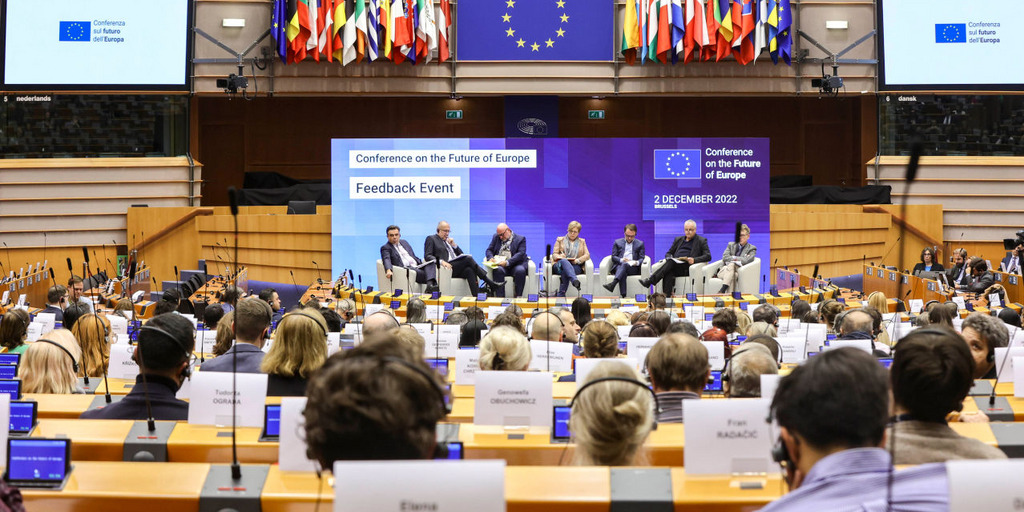The Commission envisaged panels as a regular feature of the EU’s policy-making process ahead of the key legislative proposals. A pilot series of panels was held between December 2022 and May 2023 on food waste, virtual worlds, and learning mobility. In a short space of time, the Commission established and implemented a core working methodology for the panels, which is undoubtedly a step forward for citizen participation in the EU. However, more could be done to match the Commission’s enthusiasm and to fully explore the potential of the panels.

© European Union 2022 - Source : © EP; Photographer: Alain ROLLAND; Reference: EP-139368D
EU needs to be more ambitious with citizen participation
The EU institutions are continuing their effort to advance citizen participation. In May 2023, the first generation of European Citizens’ Panels announced by the Commission President von der Leyen finished their work. The team of the EU Democracy Reform Observatory, a joint collaborative project with the European Policy Centre in Brussels, followed the work of the panels to see what became of the Commission’s ambition to set up regular panels and summarised their observations in the paper titled ‘Assessing the European Citizens' Panels: Greater Ambition Needed’.
Content
Clearer rules for the panels
Firstly, the panels should be further formalised and institutionalized. The EU institutions need to clearly define when these panels should take place in the policy cycle and what their objectives should be. They should also set precise criteria for when legislative proposals are considered key, and detail how the results of the panels will contribute to these proposals.
Improved methodology
Secondly, the panel methodology needs improvement. The authors identify six areas of improvement: (1) better selection and framing of topics; (2) improvement of the deliberative format/style; (3) greater independence, impartiality, and diversity among experts; (4) broader representation of citizens; (5) greater public awareness; and (6) an extended timeframe for conducting the panels.
Fully exploiting the democratic potential
Thirdly, the EU institutions need to recognise and exploit the democratic potential of the panels. In addition to fully involving all EU institutions and making the panels an integral part of the EU’s citizen participation infrastructure, the EU institutions need to aim higher and use the panels as a democratic tool to advance ambitious political, policy and reform agendas.
The first panels have provided a valuable opportunity to involve citizens in EU policy-making. As the EU enters an intense political season in the run-up up to the 2024 European elections, there is a window of opportunity to review the experience with citizen participation so far. The EU institutions need to be more ambitious and build on the experience of the panels, while avoiding the limitations of the current format.



